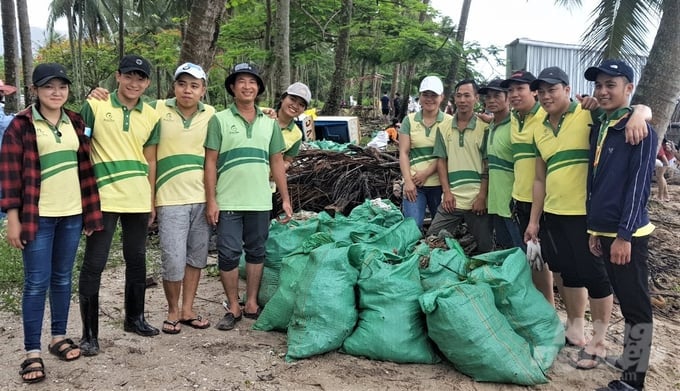June 19, 2025 | 11:15 GMT +7
June 19, 2025 | 11:15 GMT +7
Hotline: 0913.378.918
June 19, 2025 | 11:15 GMT +7
Hotline: 0913.378.918

Ms. Karin Isdahl, Commercial Counselor, Norwegian Embassy Trade Department, introduces a Feasibility Study on a Deposit-Refund Scheme (DRS) in Vietnam, helping to recover recyclable plastic waste in Phu Quoc city. Photo: Trung Chanh.
On the morning of November 21, in Rach Gia City, the delegation of the Norwegian Embassy, led by Ms. Karin Isdahl, Commercial Counselor, Norwegian Embassy Trade Department, led the delegation. They had a meeting with leaders of the People's Committee of Kien Giang province, introducing the Feasibility Study on the Deposit - Refund Scheme (DRS) in Vietnam, helping recover recyclable plastic waste in Phu Quoc City. Mr. Le Quoc Anh, Vice Chairman of Kien Giang Provincial People's Committee, and leaders of a number of departments and branches welcomed and worked with the delegation.
Accordingly, the DRS mechanism operates on the principle that consumers must pay a small deposit when purchasing plastic bottles or beverage cans. The deposit will be refunded when they return the box to the designated collection point. This is similar to the way that beverage manufacturing and trading businesses previously applied to glass bottles.

Volunteers collect littered plastic waste polluting the environment at tourist destinations and beaches. Photo: Trung Chanh.
According to assessments, Phu Quoc City currently generates about 300 tons of waste every day. Of these, about 50% is organic waste, which can be collected and composted to serve agricultural production, 30% is recyclable waste such as plastic bottles, and plastic waste from plastic bags, the remaining solid waste needs very little burial. Collecting waste for burial, and even burning it to generate electricity, is absolutely not a sustainable solution, but in the long term it is necessary to follow the direction of green technology, Net Zero carbon...
If the Deposit-Refund Scheme (DRS) is successfully implemented and applied, it will help Phu Quoc City collect a significant amount of plastic waste, which is being discharged carelessly, causing pollution at tourist destinations and beaches. From there, we aim to turn Phu Quoc into an urban area with a reduction in plastic waste, eliminate plastic pollution, and build a clean city - a blue ocean.
Translated by Hoang Duy

(VAN) After 5 years of implementation, the CAI initiative has helped coffee growers change their farming practices, moving toward responsible agriculture that meets global export standards.

(VAN) The primary prerequisite for the comprehensive and robust integration of Vietnam's livestock sector into the global value chain is the establishment of a disease control system.

(VAN) The results of national programs are essential for establishing a contemporary livestock sector that is well-equipped to meet the demands of both domestic and international markets, with robust biosafety standards.

(VAN) The UNESCO Global Geopark revalidation of Non nuoc Cao Bang and the transition to a two-tier administrative model are presently undergoing a pivotal moment in Cao Bang, the northernmost province of Vietnam.
/2025/06/13/5330-2-004539_953.jpg)
(VAN) Changing policy mindset and removing investment barriers are urgent requirements to open up new development space for enterprises in the agricultural sector.

(VAN) The areas include the restoration of five million hectares of marine ecosystems.

(VAN) Dr. Le Van Nguyen, Director of the Institute of E-Commerce Management (ECM), emphasizes the potential for green development through the cultivation of fruit trees, particularly in provinces such as Son La.